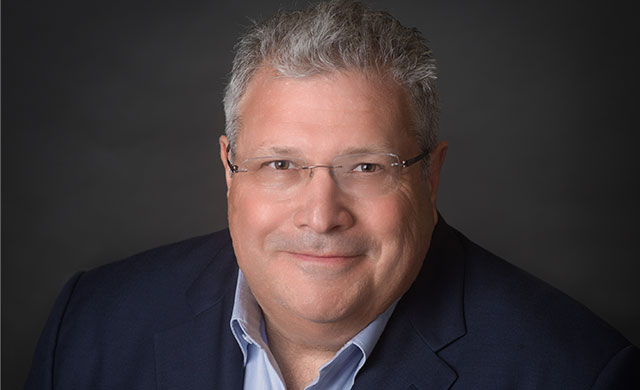PM Thinks Big at Bishkek Summit
Prime Minister Modi’s participation in the Shanghai Cooperation Organisation (SCO) summit in Kyrgyzstan on June 13 and 14 was his first multilateral engagement after a massive electoral mandate that boosts his international standing. The SCO presents India with diplomatic challenges different from those of 2017 when it obtained full membership. Changed political equations within the SCO and at the international level have bearings on our diplomacy within the organisation.
China dominates the SCO even more than before because of its economic muscle and growing all-round power. Central Asia is the principal axis of its Belt and Road Initiative (BRI), which is connecting this region durably to China through infrastructure and oil and gas pipelines. Russia backs the BRI for attracting more Chinese investments in its infrastructure, as well as to balance China’s commanding role and influence decisions on regional projects by seeking alignment of projects between the SCO and the Moscow-initiated Eurasian Economic Union.
Russia’s relations with America have effectively broken down. To counter western pressures it is strengthening strategic understandings with China. Now that America has launched a trade and technology war against China, forging a common front with Russia against America serves China’s interests more than before. For India, more coordination in Russian and Chinese policies reduces our diplomatic space within the SCO and outside.
China had insisted on Pakistan joining the SCO as full member along with India. It has become Beijing’s geopolitical tool all the more with the China-Pakistan Economic Corridor (CPEC). Russia-Pakistan ties have improved. A gap has developed between our views and those of Russia on the Taliban’s future role in Afghanistan. While China protects Pakistan on the issue of terrorism, Russia too resists any direct reference to Pakistan-sponsored terrorism against India. Contrary to our efforts to isolate Pakistan diplomatically, the SCO is seen as a platform for encouraging an India-Pakistan dialogue.
Even as Russia and China- the SCO’s mainstays- have been declared as America’s strategic adversaries, India has forged increased strategic understandings with America. Russia has concerns about India’s improved ties with the US being at its expense, especially in the defence area. It has reservations not only about our opposition to the BRI, but also about the Indo-Pacific concept.
But then India too has come under unreasonable pressure from America on defence ties with Russia and energy ties with Iran under its CAATSA legislation, and on bilateral trade ties as well, with America focusing narrowly on our high tariffs (WTO compliant) on some products and its trade deficit (limited) with negative consequences for our developing strategic partnership that will be tested during Secretary of State Pompeo’s imminent visit to India.
India’s stakes in Central Asian states are important in the context of their interest in greater involvement of a rising India in their development, the stability of the region threatened by terrorism and extremist ideologies, the potential fall-out a Taliban take-over in Afghanistan on the secular polity of these states, Pakistan’s efforts to keep us out, and so on.
At the summit, India’s focus on our priority interests remained razor sharp. Modi refused to engage with Imran Khan. That Xi Jinping chose to raise the dialogue issue with him knowing that China underwrites Pakistan’s hostility towards India and protects it on terrorism internationally was surprising. Xi was rightly told that India-Pakistan issues had to be dealt with bilaterally and that for a dialogue Pakistan had to create an atmosphere free of terrorist violence.
Modi raised India’s concerns about terrorism frontally at Bishkek, asking for accountability of countries responsible for supporting and providing financial assistance to terrorists, knowing that his remarks would be understood as targeting Pakistan. He called for an international conference to combat the scourge of terrorism.
India refused to join other SCO countries in supporting China’s BRI. His formal remarks that respect for sovereignty, regional integrity, good governance, transparency, practicality and reliability should be the basis of connectivity initiatives implicitly faulted the BRI, even as he projected India’s commitment to improved connectivity in mentioning the International North South Transport Corridor, Chabahar Port, Ashgabat Agreement, and the Air Freight Corridor with Afghanistan since 2017.
With the Afghanistan peace process becoming a US-Pakistan-Taliban affair, Modi emphasised that India supported an Afghan-led, Afghan-owned and Afghan-controlled inclusive peace process. He spoke against protectionism and for a WTO-focused rule-based and transparent multilateral trading system, joining wider concerns. On Climate Change he highlighted India’s accomplishments in renewable energy and solar power, including the launch of the International Solar Alliance. His comprehensive template for SCO cooperation encapsulated by the word HEALTH for healthcare, economic, alternate energy, literature and culture, terrorism free society and humanitarian cooperation, was eye-catching.
The political blandness of the Bishkek Declaration and some of its formulations are striking. It advocates strengthening the UN Security Council’s role but omits mentioning its expansion and UN reforms. It notes the candidatures of SCO countries to various UN bodies without offering mutual support. On the Iran nuclear deal, without lending clear support to Iran or criticising America for repudiating it and threatening military action, it calls ‘on all the participants to strictly fulfil their obligations for the comprehensive and effective implementation of the document”. While confirming commitment to its fundamental principles, clearly in response to US pressure it supports the idea of making the WTO more “efficient”.
This article was originally published here on Mail Today.




